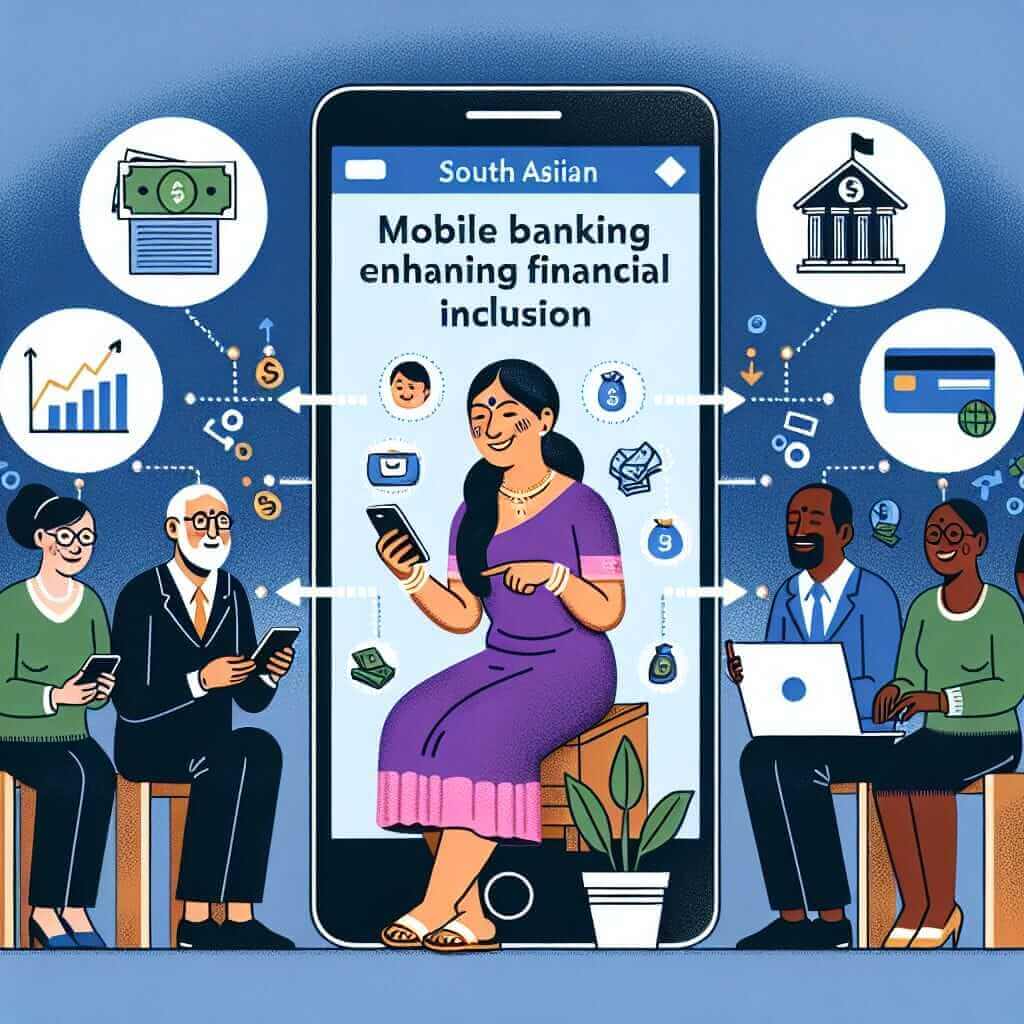The IELTS Reading exam is a critical component of the overall IELTS test, measuring the ability to comprehend written English across different topics. One topic that has gained significant attention in recent years is the impact of mobile banking on financial inclusion. Given its relevance, it is quite possible for future IELTS Reading exams to include passages on this topic. This article delves into this area, presenting a practice reading test, questions, answers, and key takeaways to help you prepare effectively.
Nội dung bài viết
- Main Content
- Practice Reading Passage
- Title: The Effects of Mobile Banking on Financial Inclusion
- Practice Questions
- Question Type: Multiple Choice
- Question Type: True/False/Not Given
- Question Type: Summary Completion
- Answers and Explanations
- Multiple Choice Answers:
- True/False/Not Given Answers:
- Summary Completion Answers:
- Common Mistakes and Tips
- Vocabulary
- Grammar
- Conclusion
Main Content
Practice Reading Passage
Title: The Effects of Mobile Banking on Financial Inclusion
Mobile banking has revolutionized the way people handle finances, especially in developing countries. With over 1.7 billion people remaining unbanked globally, mobile banking offers a promising avenue for improving financial inclusion. The proliferation of mobile phones even in remote areas means that more people can potentially access banking services without needing a physical bank branch. This convenience aims to bridge the gap between financial services and underserved communities.
One significant benefit of mobile banking is its role in facilitating transactions. Through secure apps, users can transfer money, pay bills, and even save, without relying on traditional banking infrastructure. Moreover, by keeping electronic records of transactions, mobile banking promotes transparency and accountability, which further ensures the security of users’ funds.
Furthermore, mobile banking empowers microentrepreneurs by providing them with easier access to microloans. This enables small businesses to grow, contributing to local economic development. However, despite the advantages, there are still challenges that need addressing. Issues such as lack of digital literacy, cybersecurity concerns, and regulatory obstacles hinder the widespread adoption of mobile banking.
In conclusion, while mobile banking has transformative potential for financial inclusion, it requires concerted efforts from various stakeholders to overcome existing barriers.
Practice Questions
Question Type: Multiple Choice
-
What is the main topic of the passage?
- A. The security concerns of mobile banking.
- B. The growth of the internet in rural areas.
- C. The impact of mobile banking on financial inclusion.
- D. The role of microloans in economic development.
-
According to the passage, what is one major challenge in adopting mobile banking?
- A. High transaction fees.
- B. Lack of physical bank branches.
- C. Regulatory obstacles.
- D. Poor mobile network coverage.
Question Type: True/False/Not Given
-
Mobile banking promotes accountability by keeping electronic transaction records.
- A. True
- B. False
- C. Not Given
-
The number of mobile phone users is declining in developing countries.
- A. True
- B. False
- C. Not Given
Question Type: Summary Completion
Complete the summary using the words provided.
Mobile banking offers a promising solution to increase (5) in developing regions. By facilitating secure (6), it allows users to handle various financial activities conveniently. However, to maximize its potential, challenges like (7) must be addressed.
Words: financial inclusion, transactions, regulatory obstacles
Answers and Explanations
Multiple Choice Answers:
- C. The impact of mobile banking on financial inclusion.
- Explanation: The passage discusses how mobile banking can improve financial inclusion significantly.
- C. Regulatory obstacles.
- Explanation: The passage mentions regulatory obstacles as one of the hurdles in adopting mobile banking.
True/False/Not Given Answers:
- A. True
- Explanation: The passage explicitly states that electronic records promote transparency and accountability.
- B. False
- Explanation: The passage suggests that mobile phone usage is expanding, especially in remote areas.
Summary Completion Answers:
- financial inclusion
- transactions
- regulatory obstacles
- Explanation: These words best fit the context of the summary provided, addressing the core ideas discussed in the passage.
Common Mistakes and Tips
- Misinterpreting information: Be careful not to overthink the provided information in the passage. Stick to what is explicitly or implicitly stated.
- Time management: Allocate specific time blocks to each section to ensure you answer all questions.
- Practice regularly: Regular reading practice on similar topics will help improve comprehension and speed.
Vocabulary
- Proliferation (noun): /prəˌlɪfəˈreɪʃən/ – The rapid increase in numbers.
- Example: The proliferation of smartphones has tremendously impacted various sectors.
- Microentrepreneur (noun): /ˌmaɪkrəʊˌɒntrəprəˈnɜː/ – A small-scale business owner.
- Example: Mobile banking has empowered countless microentrepreneurs in rural areas.
Grammar
-
Present Perfect Tense: Used to indicate actions that occurred at an unspecified time.
- Example: “Mobile banking has revolutionized the way people handle finances.”
- Form: have/has + past participle (revolutionized).
-
Relative Clauses: Used to provide additional information about a noun.
- Example: “One significant benefit of mobile banking is its role in facilitating transactions, which reduces the need for traditional banking.”
- Form: main clause + , + relative pronoun (which/who/that) + relative clause.
Conclusion
Preparing for the Reading section of the IELTS involves understanding various topics that could appear in the test. This article provided a comprehensive practice session on the effects of mobile banking on financial inclusion, ensuring you are well-prepared for such themes. Focus on reading various genres, expanding your vocabulary, and practicing grammar to achieve high scores.
Shortcode for Image:

By following these tips and practicing regularly, you can significantly improve your IELTS Reading skills and achieve your desired band score.